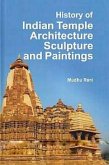Mughal Architecture was a fully developed style and a perfect discipline, as none was prior to it, medieval India. It had a time-span of 132 years, practically from 1526 to 1658, and Agra-Fatehpur Sikri, Lahore-Kashmir- Kabul, Delhi, Allahabad, Ajmer, Ahmedabad, Mandu and Burhanpur are its major centres. Nearly 400 moment of this style have survived, including city-walls and gates, forts, palaces, tombs, mosques, hammams, gardens, minarets, tanks, steps-wells, sarais, bridges, kos-minars and, of course, the Taj Mahal which marks that zenith of an art from where it could only decline. The force and originally of the style gave way under Shahjahan to a delicate elegance and refinement of detail, illustrated in the magnificent palaces erected in his reign at Agra and Delhi, the latter one the most splendid of the Mogul tombs, and the most renowned building in India, is the Taj Mahal at Agra the tomb of Mumtaz Mahal, the wife of Shah Jahan. This book places this subject in its most modern context as the foundation of this subject It is an authoritative resource of the subject that will benefit research that will benefit researches, students, and teaches alike.
Dieser Download kann aus rechtlichen Gründen nur mit Rechnungsadresse in A, B, BG, CY, CZ, D, DK, EW, E, FIN, F, GR, HR, H, IRL, I, LT, L, LR, M, NL, PL, P, R, S, SLO, SK ausgeliefert werden.









